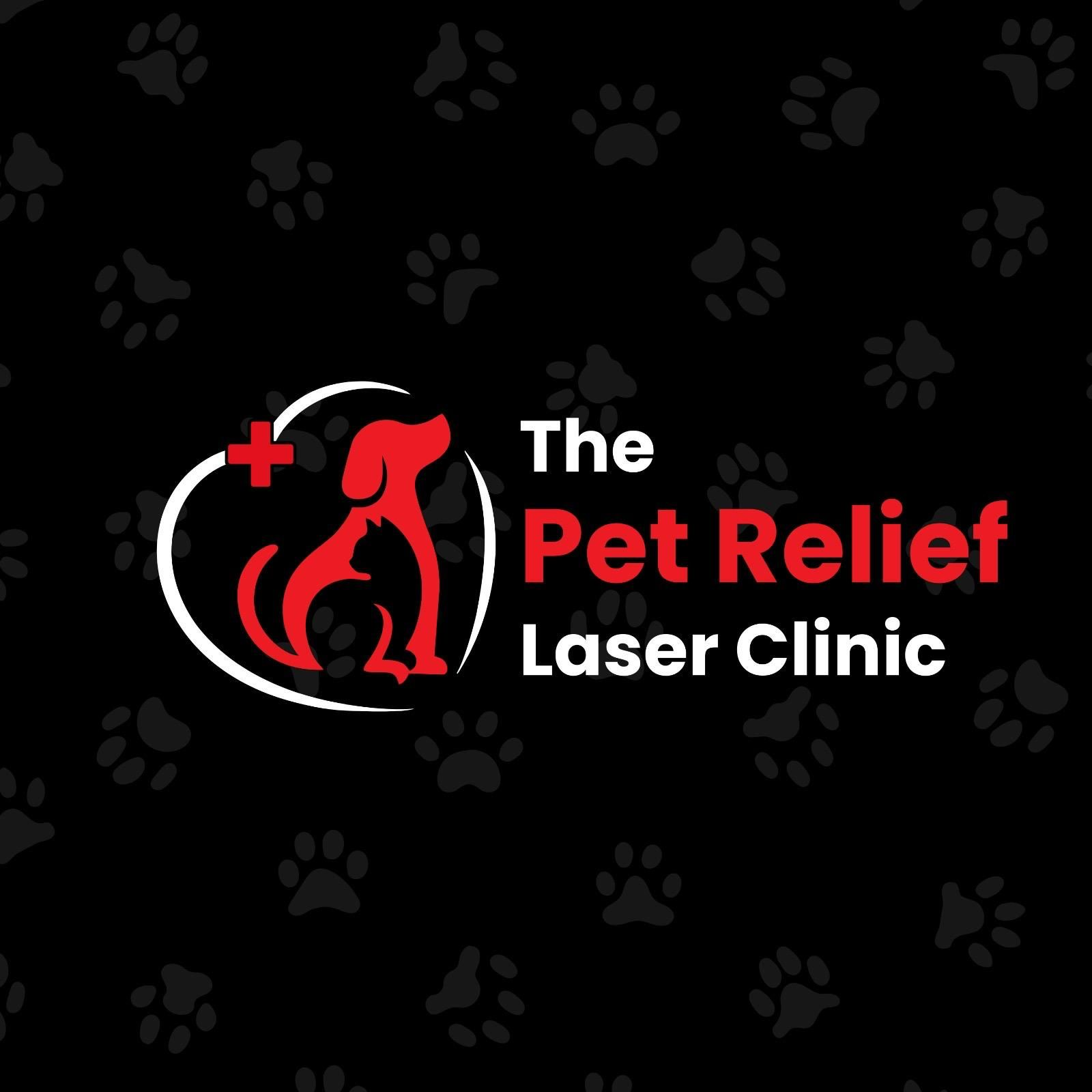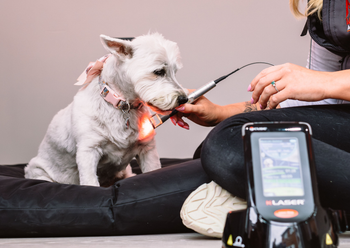
How it works
K-Laser therapy uses specific wavelengths of light to stimulate your pet’s natural healing processes.
The light energy penetrates deep into tissues, increasing circulation and promoting cell regeneration.
This helps reduce pain, inflammation, and stiffness — supporting faster recovery and lasting comfort.
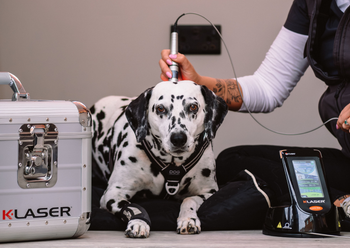
Key Benefits of K-Laser Therapy
✨ Reduces pain and inflammation
💜 Speeds up natural healing
🐾 Improves mobility and comfort
🌿 Non-invasive, drug-free, and stress-free
👩⚕️ Trusted and approved by vets
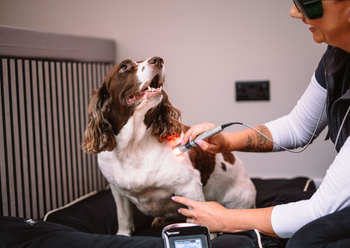
Conditions K-Laser Therapy can help
✅Arthritis & joint stiffness
✅Hip & Elbow Dysplasia
✅Spinal conditions- Spondylosis/IVDD
✅ Post-surgical recovery
✅ Soft tissue injuries
✅ Wound healing
✅ Lick granulomas & hot spots
✅ Chronic pain or inflammation
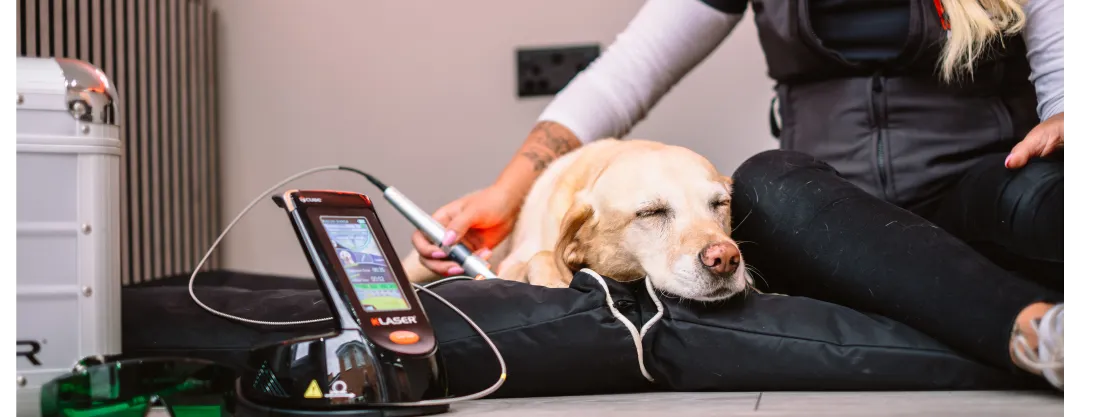
What to expect during treatment
Your pet’s session is calm, gentle, and completely non-invasive. Most pets relax or even fall asleep during therapy!
Treatment times vary depending upon the condition and the size of your animal, but the majority are 10-30 minutes. Often improvement can be seen after the first visit, however Class IV Laser Therapy treatment is cumulative in nature so for most conditions patients will require several repeat treatments for greatest benefit. The schedule of treatments will vary depending upon the condition but this is an example plan often used:
Three treatments in the first week
Two in the second week
One in the third week
Monthly booster sessions as needed
Your laser therapist will recommend a treatment plan specific to your pet’s condition. A veterinary referral is required before treatment can be carried out. Please contact Emily directly for a referral form.
Frequently asked questions
Laser therapy can effectively treat a range of conditions in pets including musculoskeletal injuries, osteoarthritis, hip dysplasia, elbow dysplasia, wound healing, post-surgical pain, spinal issues, and skin conditions such as hot spots and lick granulomas.
The duration of a laser therapy session for pets varies depending on the condition being treated and the size of the treatment area. Sessions typically last between 5 to 30 minutes, and the number of sessions required will be determined based on the pet's individual needs.
How many sessions will my pet need?
This depends on the nature of the condition being treated. For some acute conditions 1-2 treatments may be sufficient. Often chronic conditions may require an initial set of 5 to 8 treatments with booster sessions as required to control pain.
Has Laser Therapy been scientifically demonstrated to be effective?
Hundreds of published clinical papers have demonstrated the effectiveness of Laser Therapy. Laser Therapy is one of the fastest growing therapeutic treatments for both humans and animals for a wide range of conditions.
